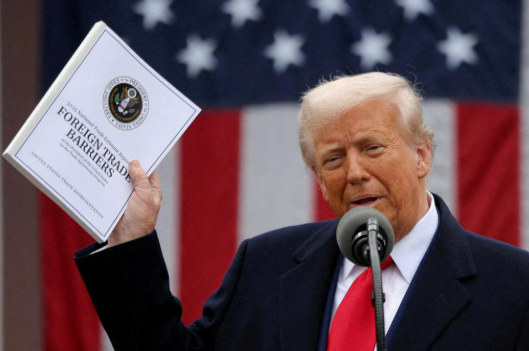
Trump’s tariff war refers to a series of trade protectionist policies implemented by the Trump administration, which mainly attempts to achieve the US’s economic goals by imposing high tariffs on imported goods. There are some specific manifestations and reasons as follows:
Main measures: On April 2, 2025, local time, Trump announced “reciprocal tariffs” on trading partners, imposing tariffs of at least 10% on all goods exported to the United States, imposing additional taxes on about 60 economies with the largest trade deficits with the United States, and maintaining a 25% tariff on certain products such as automobiles and steel and aluminum. On April 8, US media reported that the United States had raised tariffs on Chinese imports to 104%.
Purpose and impact: Trump claimed to solve the trade deficit problem between the United States and other countries, and wanted to force other countries to make concessions in trade negotiations by raising tariffs, so as to promote the return of US manufacturing. However, these policies triggered a chain reaction and widespread condemnation around the world, and many countries took reciprocal countermeasures. This has not only led to a high level of tension in Sino-US economic and trade relations, but also caused a serious impact on the global economic order and industrial chain stability, triggering fluctuations in the financial market. For example, the three major stock indexes in the New York Stock Exchange have plummeted due to tariff policies.
Reasons for continued: On the one hand, Trump may have too much confidence in the economic strength and international influence of the United States and believes that he can achieve his goals through tough measures. On the other hand, he may be supported by some domestic interest groups, such as some manufacturing companies that hope to gain competitive advantages through tariff protection. In addition, Trump’s personal style and political philosophy also played a role. He seems to care more about the process of exerting influence on other countries rather than a specific effective tariff rate, and applies his negotiation strategy in the business field to international trade policy.




